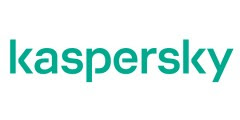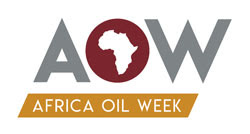PRESS RELEASE
Spyware attacks on organisations in South Africa, Kenya and Nigeria increased in Q1 2023
Spyware continues to be a threat to users of different types of devices, including thin clients.
Access Multimedia Content
https://kaspersky.africa-newsroom.com/press/media/spyware-attacks-on-organisations-in-south-africa-kenya-and-nigeria-increased-in-q1-2023?lang=en
LAGOS, Nigeria, May 15, 2023/ -- As discussed during the recent Kaspersky Cyber Security Weekend – META 2023 (www.Kaspersky.co.za), for the first quarter of 2023 (Q1 2023) the share of users attacked1 with spyware in South Africa, Kenya and Nigeria increased steadily. Kaspersky recorded an increase of 18,8% in South Africa, 12,9% in Kenya, and 14,6% in Nigeria from Q4 2022 to Q1 2023. Spyware continues to be a threat to users of different types of devices, including thin clients.
Thin clients are used in corporate networks around the world to set up workspaces at a much lower cost than when using traditional laptop or desktop computers (thick clients). A thin client on a traditional operating system (OS), Linux or Windows-based, could potentially be targeted by different types of attacks, including spyware. A compromised thin client could serve as an entry point to the corporate network, and it could be used to gain access to confidential data, take control over other machines on the network, or run malicious software, etc. According to Kaspersky, there are over 60 vulnerabilities in thin clients that could be used by cybercriminals.
Victor Ivanovsky, KasperskyOS Business Development Lead.
In response to advancing cyberthreats, Kaspersky promotes the Cyber Immune approach. The Kaspersky Secure Remote Workspace solution offers a manageable and functional thin client infrastructure that is built according to the secure-by-design principle and the Cyber Immune approach that makes them more resilient to cyberattacks in comparison to traditional thin clients. Together with Centerm, a global producer of thin clients, Kaspersky produces the KTC (Kaspersky Thin Client) – the world's first thin client with Cyber Immunity that requires no additional antivirus protection tools. At the core of the solution lies KasperskyOS, a microkernel operating system. KTC excludes the possibility of exploiting a wide range of vulnerabilities common in traditional thin clients. Another component of the solution – the unified management console – solves the problem of managing and monitoring thin client infrastructure.
Kaspersky Secure Remote Workspace is suitable for many areas where a large number of workstations with similar tasks and a standard set of applications are used: the public sector, educational institutions, manufacturing and production plants, fuel and energy sector, healthcare, financial organisations, retail, and others.
“Thin clients have gained popularity over the last few years, especially after the pandemic, as organisations were seeking cost effective ways of setting up remote workplaces. It is also believed by many that they are secure to use and less vulnerable to malware than traditional machines. However, this belief is nothing more than a myth: thin clients running traditional operating systems are vulnerable, and our internal research shows that they can be hacked with a simple tool in under 10 minutes and be used to spy on users and/or access confidential data,” comments Victor Ivanovsky, KasperskyOS Business Development Lead. “We believe that the future of thin client development should be determined by Cyber Immunity. Attacks on a Cyber Immune system are ineffective - they continue to function even in an aggressive environment and stop potential attackers in their tracks.”
[1] All of these attacks were blocked by Kaspersky.
Distributed by APO Group on behalf of Kaspersky.
For further information please contact:
Nicole Allman | INK&Co.
nicole@inkandco.co.za
Social Media:
Facebook: https://apo-opa.info/3M3uy0L
Twitter: https://apo-opa.info/3OaLeGw
YouTube: https://apo-opa.info/41wO7V6
Instagram: https://apo-opa.info/42BZnRq
Blog: https://apo-opa.info/42Apbxn
About Kaspersky Secure Remote Workspace:
Kaspersky Secure Remote Workspace (KSRW) is a solution for building a Cyber Immune, managed and functional thin client infrastructure based on the microkernel operating system KasperskyOS for secure connection to remote desktops. Thin clients as part of the solution are based on Cyber Immunity – Kaspersky’s own approach to creating IT solutions with built-in protection against cyber threats.
In 2022, Kaspersky Secure Remote Workspace received the World Leading Internet Scientific and Technological Achievements award. It is awarded to significant scientific and technological achievements in the field of information technology, innovative solutions and developments. The jury includes Turing Award winners, members of the Academia Europaea, the American Academy of Arts and Sciences, academicians of the Chinese Academy of Sciences and the Chinese Academy of Engineering.
About Kaspersky
Kaspersky is a global cybersecurity and digital privacy company founded in 1997. Kaspersky’s deep threat intelligence and security expertise is constantly transforming into innovative solutions and services to protect businesses, critical infrastructure, governments and consumers around the globe. The company’s comprehensive security portfolio includes leading endpoint protection, specialized security products and services, as well as Cyber Immune solutions to fight sophisticated and evolving digital threats. Over 400 million users are protected by Kaspersky technologies and we help over 220,000 corporate clients protect what matters most to them. Learn more at www.Kaspersky.co.za.
SOURCE
Kaspersky





.jpeg)
.jpeg)
.jpeg)
.jpeg)
.jpeg)
.jpeg)










.jpg)

.jpg)









.jpeg)
.jpeg)

